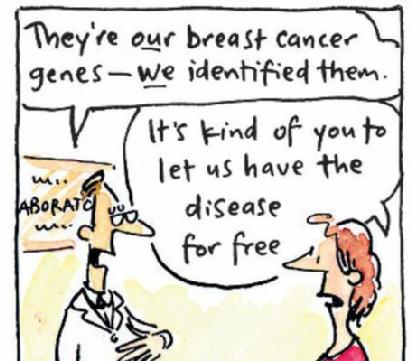In the case briefs of Myriad Genetics vs Associated Molecular Pathology, amongst the several moving stories of victims of gene patents, contained the story of Abigail, a 10-year-old with a long QT syndrome, a serious heart condition that, if left untreated, could result in sudden death. A company in this case had obtained patent on two genes associated…
